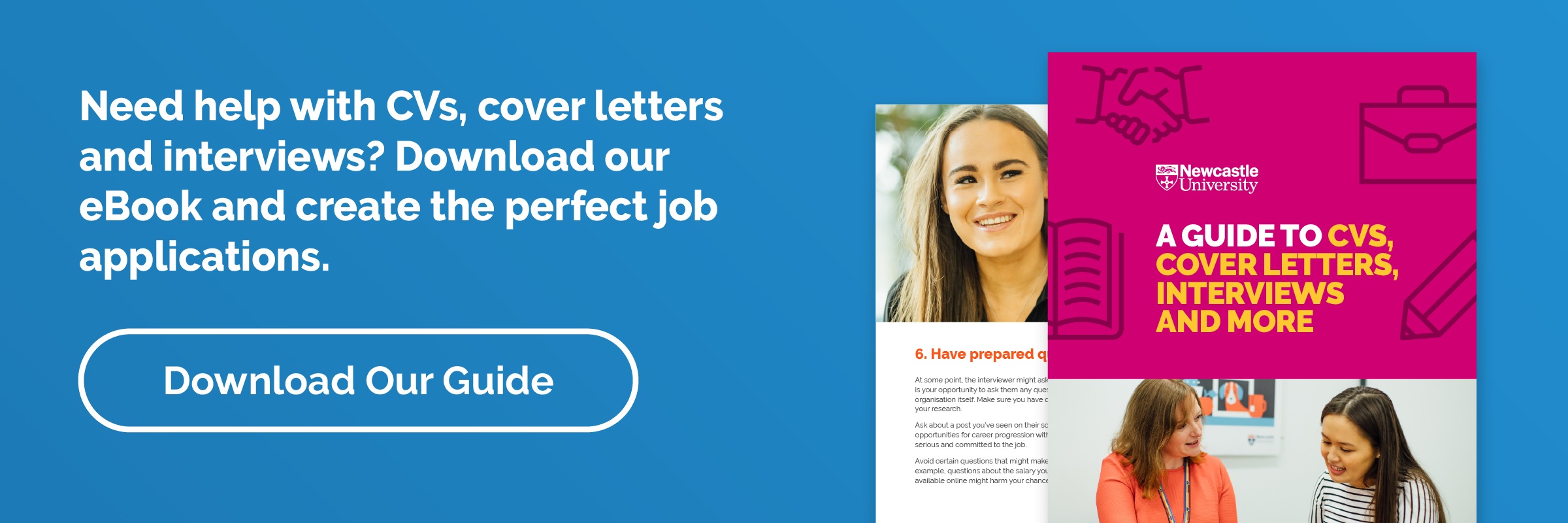When it comes to your career, thinking of the future can be overwhelming. It can be easier to take things one step at a time. This blog might help. Here's how to choose a career path for students at university.

- Start thinking about your future career as soon as possible
- Consider your strengths and interests
- Do your research and explore careers
- Talk to other people about your future plans
- Think about whether you'll enjoy working in your chosen career
1. Start thinking about your future career as soon as possible
There’s a high chance you already have an idea of what you want your future career to be. However, if you’re still unsure, you need to start thinking about it now.
It doesn’t matter whether you're just looking at courses or you're in your final year at university, it’s never too early to think about your career. Exploring what your ideal career could be will motivate you to work towards it.
Whether you’re looking for the right degree or want a fun way to find out what your ideal career path could be, try a quiz. It can help you find out what you’re like as a person and which career might suit you, your skills and interests.
Quizzes are a great way to start exploring options and find information, even if you don't see your ideal career straight away, it can still help you with your research.
2. Consider your strengths and interests
Your perfect career path can depend on the course you study at university. Each degree can lead to many different job roles which you might not have thought about before.
Start by making a list of all your skills, with evidence of when you've demonstrated each one. It's important to honestly assess your skills, values and interests because it can ensure you pursue the right career path.
You may even find that your strengths and what you learnt from your degree can help you in a different career path to the one you originally intended.
It’s easy to discover the many career options you can enjoy after graduation.
Then, consider where you are now, where you want to be and how you're going to get there. This will help you set goals for yourself. Plus, it shows potential employers that you have a genuine interest in that industry and a drive to achieve your goals. It can help set you apart from other candidates.
3. Do your research and explore careers
Make sure you spend time researching the job market and potential career paths. You must also consider which size of business best suits your personality and work ethic. Are you better to work for a small to medium-sized enterprise, large company or start your own business?
This is the perfect time to consider work experience, internships and volunteering opportunities. They'll help you get a better idea of the areas you're interested in before committing yourself to a certain career path. It’s also something you can put on your CV to increase your employability.
4. Talk to other people about your future plans
You might think you have your future all planned out. However, talking to somebody about your career path can still be beneficial. They can give you advice and support so you can achieve your goals.
You could:
- talk to other students and get advice on platforms like Unibuddy
- attend career fairs and chat to potential employers
- join a society related to the career you want and talk to other members
- discuss your future plans with your parents as they might offer some helpful advice
- use social media like LinkedIn to connect with potential employers
- if you attend Newcastle University, use the NCL Spark platform run by the alumni team. You can connect with a mentor and receive lots of career advice
You should also use the careers service at your university. You’ll get a lot of advice and support to help you find your perfect career path. In addition, they can help with your CV, LinkedIn profile and job applications to help you work in the career field that you want.
By talking to other people and asking for their advice, you'll understand whether the career path you have planned is the right one for you. You might end up realising that you’re passionate about a career that you didn’t even know existed. This is why it's never too early to start planning your ideal career.
5. Think about whether you'll enjoy working in your chosen career
The most important part is that you make sure you’re going to enjoy your future career. You must be passionate about it if you chose to study a degree that helps you towards that career.
For example, if you’re studying an engineering-related degree, you must want to work in that field.
You’re going to be working in that industry for a long time, so take some time to think about it. You can decide if it’s the right career path for you by work shadowing or doing an internship. If you want to get prepared for your future career, you can also use our helpful guide.
Get ready for your future career with our guide to working life
Newcastle University is a Russell Group University who will support you with everything career-related. You can always ask our Careers Team for advice - they can help with everything from interviews to applications.
Download your own guide below for tips when it comes to working life.
